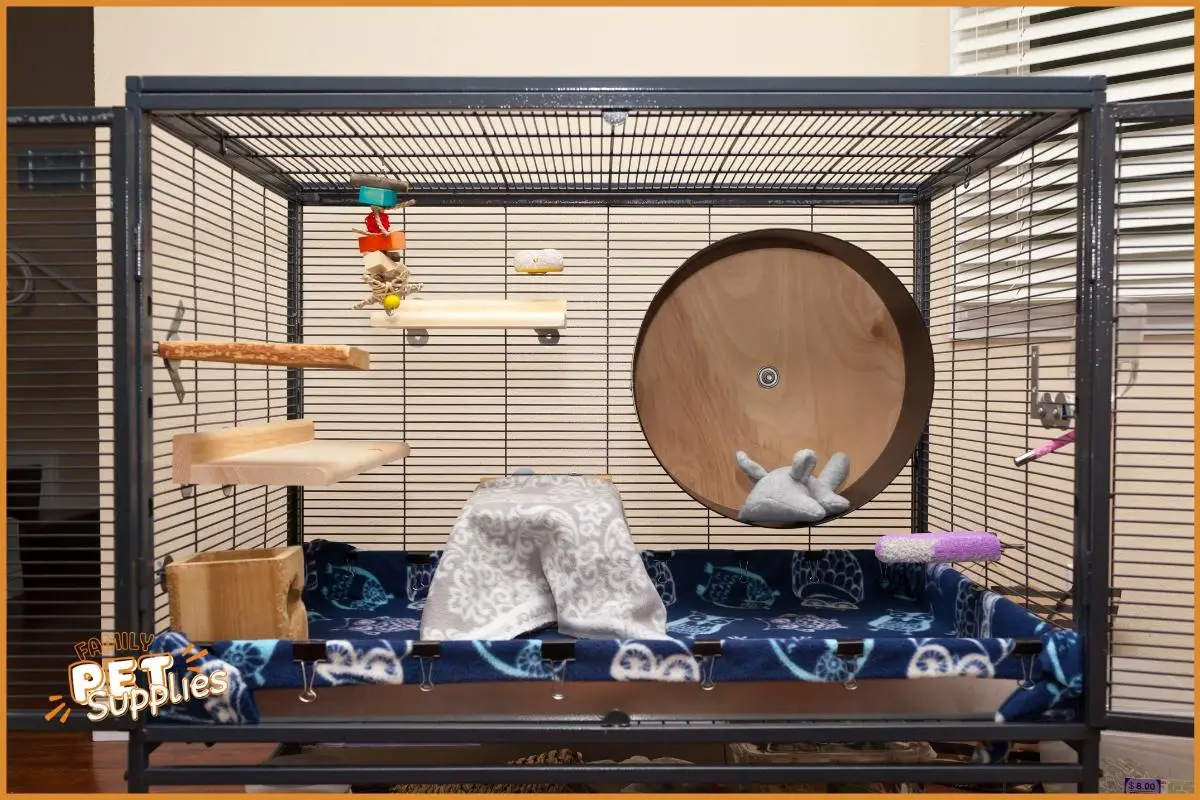Chinchillas should always have access to clean water. They can go a day without water, but any longer can lead to dehydration and health concerns. Ensuring the water bottle functions properly and is refilled daily is crucial. Observing their water intake can also help in understanding their health and hydration needs.

Key Takeaways
- Chinchillas can survive only a day without water.
- Dehydration can lead to kidney damage, bladder stones, and death.
- Regularly check the water bottle for leaks or clogs.
- Clean the water bottle to remove bacteria and debris.
Importance of Water for Chinchillas
Ensuring proper hydration is essential for the well-being of your chinchilla. Providing clean and fresh water at all times is crucial for their health.
Hydration offers numerous benefits to your furry friend, including proper digestion, temperature regulation, and overall organ function. By drinking enough water, chinchillas can avoid issues such as constipation and urinary tract infections.
To maintain their water intake, it’s important to regularly check and clean the water bottle. Inspect for any clogs or leaks that may hinder your chinchilla’s access to water. Additionally, refill the water bottle daily to ensure a constant supply.
Monitoring your chinchilla’s water consumption is key to understanding their hydration needs and preventing any potential health problems.
The Risks of Dehydration in Chinchillas
If a chinchilla goes without water for more than a day, it can result in dehydration and pose serious health risks. Dehydration can lead to various health problems, such as decreased appetite, loss of weight, and even organ failure. Chinchillas rely on water to regulate their body temperature and aid in digestion. Without enough water, their bodily functions can be severely affected.
It’s important to monitor their water intake and ensure they always have access to clean water. Regularly checking the water bottle and refilling it daily is essential. By understanding the risks of dehydration and prioritizing hydration, you can help keep your chinchilla healthy and happy.
Signs of Dehydration in Chinchillas
To monitor your chinchilla’s hydration levels, look out for signs of dehydration. Prevention is key, so make sure your chinchilla always has access to clean water. If you notice any of the symptoms of dehydration, take immediate action to address the issue.
Signs of dehydration in chinchillas include dry and sticky gums, sunken eyes, loss of appetite, lethargy, and dry skin. You may also observe decreased urine output and a lack of grooming. If you notice any of these symptoms, it’s important to provide your chinchilla with fresh water immediately and consult a veterinarian if necessary.
How Long Can a Chinchilla Survive Without Water
Chinchillas can survive for only a limited amount of time without water, typically no more than a day. It’s important to understand the water requirements of chinchillas to prevent any consequences of water deprivation.
Chinchillas need access to clean water at all times to stay hydrated and maintain their overall health. Dehydration can lead to various health concerns, such as kidney damage, bladder stones, and even death in severe cases. Therefore, ensuring that the water bottle is functioning properly and refilled daily is crucial.
Observing your chinchilla’s water intake can also help you understand their hydration needs and detect any potential health issues. Remember, water is essential for a chinchilla’s well-being, so always prioritize their access to fresh water.
Potential Health Concerns From Lack of Water
Without access to water, you put your chinchilla at risk for dehydration and potential health complications. Dehydration occurs when the body loses more water than it takes in, and it can have serious consequences for your pet.
Some common dehydration symptoms in chinchillas include lethargy, dry mouth, sunken eyes, and poor appetite. It’s important to monitor your chinchilla’s water intake and ensure they always have access to clean and fresh water.
Proper water bottle maintenance is crucial to prevent any issues. Regularly check the water bottle for leaks or clogs, and clean it thoroughly to remove any bacteria or debris.
Additionally, make sure to refill the water bottle daily to ensure your chinchilla stays hydrated and healthy.
Tips for Ensuring Adequate Water Intake
Ensure your chinchilla’s optimal hydration by following these tips for maintaining adequate water intake.
First, make sure to provide your chinchilla with a clean and functioning water bottle. Check the bottle regularly to ensure there are no leaks or blockages that could prevent your pet from accessing water. Refill the bottle daily to ensure a fresh supply of water.
Additionally, it’s important to monitor your chinchilla’s water intake. Keep an eye on how much water they’re consuming on a daily basis. If you notice a significant decrease in their water intake, it could be a sign of illness or dehydration. In such cases, consult a veterinarian immediately to ensure your chinchilla’s health and well-being.
Monitoring and Maintaining Chinchilla Hydration
To monitor and maintain your chinchilla’s hydration, you should regularly observe their water intake and ensure they have access to clean and fresh water. Dehydration prevention methods include monitoring the functionality of their water bottle. Check for any leaks or blockages that may prevent your chinchilla from accessing water.
It’s important to clean the water bottle regularly to prevent the growth of bacteria. Additionally, make sure to refill the water bottle daily to ensure a constant supply of fresh water.
Observing your chinchilla’s water intake is crucial in identifying any changes in their hydration needs. If you notice a sudden decrease in water consumption, it may be a sign of an underlying health issue.

